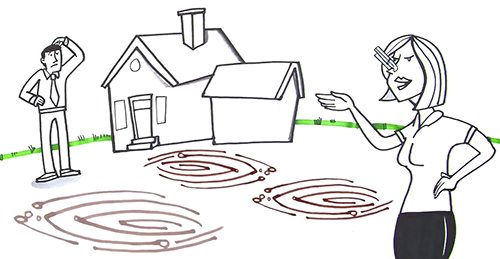Septic Tank Failure: Can be a Health Hazard
- Sun Septic
- Oct 24, 2023
- 2 min read
Septic systems are essential for safely disposing of wastewater from homes that are not connected to a municipal sewer system. However, if a septic system fails, it can pose a serious health hazard to the homeowner, their family, and the community.

Health Risks
Inadequately treated sewage from a failing septic system can contaminate drinking water and spread diseases such as dysentery, hepatitis, typhoid fever, and acute gastrointestinal illness. These diseases can cause a variety of symptoms, including diarrhea, vomiting, fever, and muscle cramps. In severe cases, they can even lead to death.
In addition to disease, septic tank fumes can also carry airborne bacteria that can cause sinus infections and other respiratory problems. Mold spores can also be released from a failing septic system, which can lead to respiratory problems and other health issues for people with asthma or mold allergies.
How to Prevent Septic Problems
There are a number of things you can do to prevent septic problems:
Have your septic system inspected and pumped regularly by a qualified professional.
Do not flush anything down the toilet other than human waste and toilet paper.
Avoid using excessive amounts of water, especially during peak times.
Be mindful of what you put down the sink drain. Avoid using grease traps and garbage disposals, as they can overload your septic system.
What to Do If You Suspect a Septic Problem
If you notice any of the following signs of a septic problem, contact a qualified professional immediately:
Slow-draining toilets and sinks
Gurgling sounds in the plumbing system
Sewage backup in the home
Puddles of sewage around the septic tank or drain field
Strong odors coming from the septic tank or drain field
Septic system failure can be a serious health hazard. However, by taking steps to prevent septic problems and by responding promptly to any signs of trouble, you can protect yourself, your family, and your community.
Additional Tips for Preventing Septic Problems
Keep your septic system away from trees and shrubs. Tree roots can damage your septic tank and drain field.
Avoid using harsh chemicals around your septic system. These chemicals can kill the beneficial bacteria that help to break down waste.
Conserve water. The less water you use, the less strain there will be on your septic system.
Consider using a septic tank treatment product like SunSeptic Product. These products can help to break down waste and keep your septic system running smoothly. Simply flush one pod down each month and you're helping maintain overall septic health.
If you have any interest in monthly septic maintenance with SunSeptic please reach out at 877-224-5839.



Comments